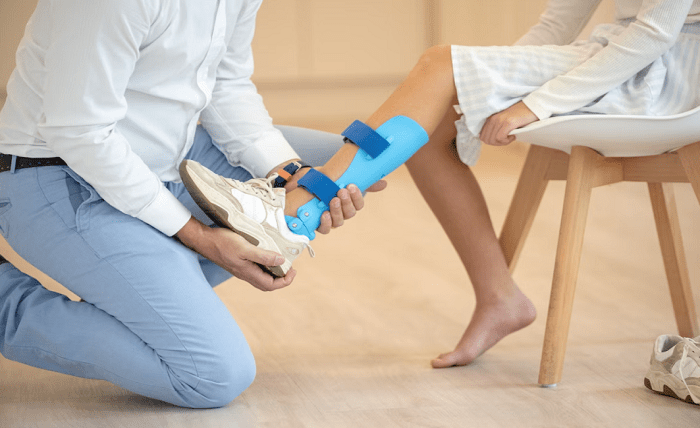Minimalism is more than a design trend; it is a mindset that focuses on simplicity, balance, and intentional living. By removing unnecessary clutter—both physical and mental—many people find space to focus on what truly matters: their health. This approach can have profound effects on physical well-being, especially for those recovering from injuries or managing chronic pain under the guidance of an orthopedic doctor in Fountain City, TN. When you eliminate excess and focus on mindful routines, your body and mind can work together toward faster, more sustainable recovery.
The Connection Between Simplicity and Health
Living minimally means reducing distractions and focusing your time and energy on what supports your well-being. In the context of health, this mindset encourages you to prioritize rest, nutrition, and movement—core elements of recovery. A simplified environment allows your body to heal without the constant stress of overstimulation. Studies have shown that cluttered spaces can increase cortisol levels, which in turn can hinder the healing process. By maintaining a clean, organized space, you give your body and mind the calm they need to recover efficiently.
Minimalism also promotes intentional choices. Instead of trying every new diet, workout, or health gadget, minimalists focus on what truly works for their bodies. This deliberate focus prevents burnout and builds consistent, sustainable habits that improve long-term wellness. When applied to physical recovery, it encourages patients to follow prescribed treatments carefully and avoid overcomplicating their routines with unnecessary alternatives.
A Calmer Mind for a Healthier Body
The connection between mental clarity and physical health cannot be overstated. Minimalist living helps reduce mental clutter by limiting distractions, simplifying commitments, and encouraging mindfulness. When your mind is calm, your nervous system can function more efficiently, allowing your body to focus its energy on healing rather than stress.
Injuries and chronic conditions often bring anxiety and frustration. Adopting a minimalist mindset helps patients cope by fostering acceptance and patience. Rather than chasing quick fixes or comparing progress to others, they learn to value small, meaningful improvements. This positive mental shift plays a critical role in overall recovery, as reduced stress improves immune function, lowers inflammation, and supports restorative sleep—all essential to healing.
Movement and Minimalism: Less Can Be More
Physical recovery often involves structured exercise and therapy, but minimalist principles suggest that less can sometimes be more. Instead of overtraining or pushing beyond physical limits, a minimalist approach emphasizes controlled, intentional movement. Quality takes precedence over quantity. This approach helps prevent reinjury and encourages proper form and muscle engagement.
For instance, simple exercises such as mindful stretching, bodyweight strength routines, or gentle yoga can provide tremendous benefits without requiring expensive equipment or complex programs. By removing unnecessary complications, individuals can better listen to their bodies and focus on proper alignment, breathing, and gradual progress. This is particularly important for people working through orthopedic issues or regaining mobility after injury.
Creating a Minimalist Environment for Healing
Your physical surroundings have a direct impact on your recovery. A minimalist home environment reduces sensory overload and provides a peaceful space for healing. This doesn’t mean living in an empty room; it means curating your environment with intention. Choose comfortable, functional furniture that supports good posture, eliminate clutter that causes stress, and keep only items that serve a purpose or bring you calm.
Natural light, clean air, and organized spaces contribute to better sleep and reduced anxiety—two crucial components of physical recovery. A minimalist setting also allows you to move more freely, which encourages gentle activity and reduces the risk of accidental strain or falls. Patients recovering from surgery or injury often find that simplicity makes managing their daily routines less overwhelming and more focused on progress.
Nutrition and Minimalism: Focusing on the Essentials
Minimalism also applies to how we nourish our bodies. A minimalist approach to nutrition emphasizes quality over quantity—fewer processed foods, more whole ingredients, and mindful eating habits. Instead of chasing the latest health trend, focus on consistent, balanced meals that support recovery and energy.
By simplifying meal planning and avoiding overly restrictive diets, you can maintain a healthier relationship with food. This helps regulate metabolism, supports tissue repair, and strengthens the immune system—all vital aspects of physical recovery. Just as in other areas of life, minimalism in nutrition encourages consistency and self-awareness, which often lead to better long-term results.
Long-Term Wellness Through Simplified Living
Minimalism is not just a temporary solution—it is a sustainable path to long-term wellness. By reducing physical and emotional clutter, you create space for movement, mindfulness, and recovery to thrive. This lifestyle supports preventative health by encouraging balance, rest, and moderation. It teaches you to listen to your body’s signals and respect its limitations while still working toward improvement.
Those who embrace minimalism often report feeling more energized, focused, and at peace. This internal clarity translates into better decision-making around health and daily habits. Whether it’s committing to regular physical therapy, maintaining good posture, or staying active in moderation, simplicity strengthens consistency.
Conclusion
In a world that glorifies busyness and excess, minimalism reminds us that health thrives in simplicity. By decluttering your space, focusing on essential habits, and maintaining mindfulness, you allow your body to recover and your mind to rest. This intentional approach aligns perfectly with the care and support provided by professionals like an orthopedic doctor in Fountain City, TN, who helps patients move toward lasting recovery. Ultimately, minimalism isn’t just about living with less—it’s about healing with more focus, clarity, and purpose.

